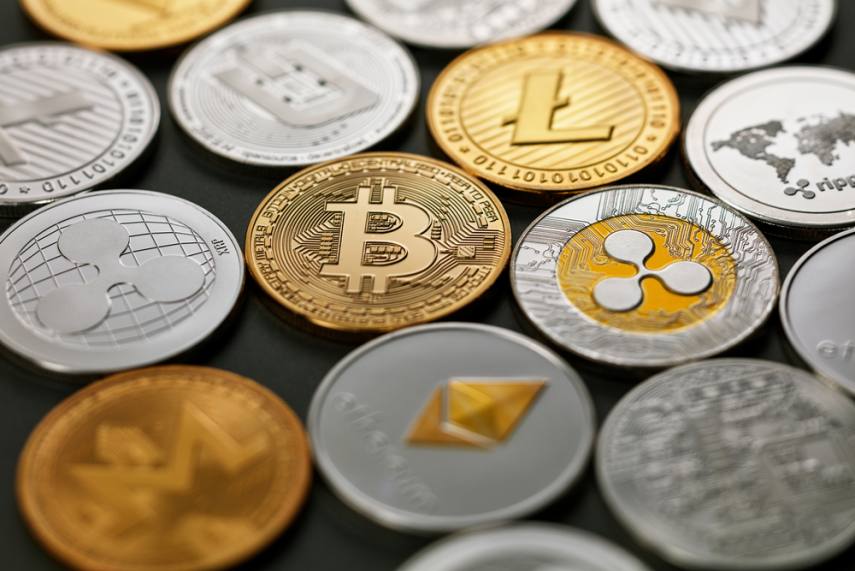Cryptocurrency investors are now used to price volatility. The digital currency and token market grew from $17 billion to $820 billion in 2017. Over the next two years, it fell to $100 billion. Then in November 2021 it reached almost $3 trillion. The cryptocurrency market slumped below $800 billion six months ago due to a drop in inflation. After all, the total cryptocurrency market cap is now $1.1 trillion. There are no guarantees in investing, especially in the unpredictable crypto industry. However, there are far more positives than negatives to buying some Bitcoin right now.
Why Bitcoin as Cryptocurrency?
There are thousands of cryptocurrencies on the market. Many are either fun little toys or outright jokes. But a few dozen names sound like serious investment ideas. However, Bitcoin remains the leader. It’s not just the oldest name on the list and the biggest in terms of current market cap. He’s also a fighter who continues to write the rulebook for other cryptos to follow. There will never be more than 21 million Bitcoins in circulation. In this context, 19.4 million of these tokens have already been minted. Bitcoin is far from the only crypto to limit inflation by technical means. But Bitcoin’s size makes it incredibly expensive and nearly impossible to change this policy.

In the best of all possible worlds, Bitcoin will eventually become the default global currency, with large institutional investor holdings and billions of real-world payment transactions each year. In the worst case imaginable, Bitcoin will drop to zero for whatever reason in the long run. Of course, for this to happen, better solutions need to be found. On the other hand, every government should ban cryptocurrencies. It should also turn out that the code has disastrous vulnerabilities. Both of these extremes are equally unlikely.
Positive cases for Bitcoin
Bitcoin will take its place in this regulatory uncertainty for a few more years. It will also work its way through the period of limited mass market adoption. Eventually, many blockchain tokens will emerge as big winners in an increasingly digitized global economy. All in all, Bitcoin will likely maintain its dominant position in the market. The current cryptocurrency winter will not last forever. Bitcoin seems to be the soundest long-term investment idea in the crypto industry. Other names will follow. But none can match the rock-solid value proposition of the leading Bitcoin. In other words, smaller names can be fun. However, it is completely optional. When it comes to Bitcoin, make sure you have some in your digital pocket before the next bull run begins.

There are several reasons to take action right now for cryptocurrency investments, and Bitcoin in particular. The priority is about protection from inflation. The worldwide crisis of inflation is easing. However, no one wants to experience a new crisis. Everyone, from consumers and investors to business owners and government agencies, can use a value-accumulating asset in traditional fiat currencies that can weather the next 100-year storm. Bitcoin will serve this purpose in many cases. On the other hand, Bitcoin acceptance is also increasing. Accordingly, there are already companies that support payments with Bitcoin and other popular cryptocurrencies. More are likely to follow in the next few years as the Web3 vision evolves. This potential shift towards decentralized systems will disrupt the slower and more bureaucratic systems we are used to. cryptocoin.comAs we mentioned above, Bitcoin is preparing to play a very important role in this upcoming revolution.
Bitcoin halving with legal regulations
As regulatory frameworks for cryptocurrencies become more transparent, this could remove a significant barrier to entry for many institutional investors. On the other hand, it could potentially lead to increased demand for Bitcoin. A clearer framework for property, taxation and transaction processes will inspire app developers to work with cryptocurrencies. As a result, consumer interest will increase.

On the other hand, the next Bitcoin “halving” is expected to happen next spring. These events reduce the rate at which new Bitcoins are created approximately four years apart. For sound economic reasons, these halvings lead to historically significant price increases due to dwindling supply and rising mining costs. Of course, past performance is no guarantee of future market movements. However, the cryptocurrency market has been following a strong cyclical trend so far. In this context, the next rise is right next to us.




